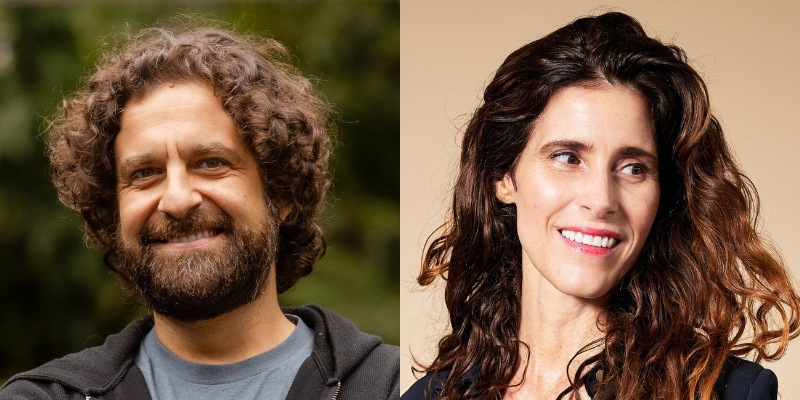I once asked Town Hall’s Ticketing Manager how often we get calls from people attempting to reach City Hall? “At least a couple per week. Maybe even one per day in the summer.” It didn’t take me long to wonder if City Hall got calls intended for us, and whether there was anything we could do to fix that. I had to know more. So in honor of the the 50th Annual Municipal Clerks Week I reached out to City Clerk Jaci Dahlvang, who answered questions all about phone call confusions and day-to-day life in city government.
AE: Can you tell me about a day in the life of a City Clerk? What roles do you play? What’s the most interesting aspect of your job?
JD: On any given day we can be found registering domestic partnerships, accepting claims for damages, explaining where a bill is in the legislative process, training folks on legislative research, or helping candidates begin the process of running for office. If you’ve ever signed a Seattle Initiative Measure, it was filed here first!
This office is also home to the Seattle Municipal Archives, a treasure trove of City records of enduring value. We can help you find out what the legislation says, but they can help you put it in context. I’m a huge nerd, so I love that I’m now a part of Seattle history. I wrote City Council meeting minutes during my first year here, so now my name is in bound volumes that will stay in the Archives forever. I also love puzzles, so any day that I get to dig in and help solve a legislative mystery with a researcher is a good day. We’re proud of the part we play in maintaining government transparency and supporting democracy in action.
I’m part of a team of Legislative Information Specialists. We are just one part of the Office of the City Clerk, but we are the face of the office. We’re the folks who answer calls, emails, and in person questions about City filings, the legislative process, and more.
AE: If there was one thing you wished people knew about City Clerks (or about city government in general) what would it be?
JD: That we exist! I didn’t know anything about City Clerks until I started working here. The City Clerk is a public officer who takes an oath of office, and some of the important responsibilities of the position include providing neutral stewardship of the legislative and election processes, as well as supporting meeting and record management requirements, all in service of civic engagement and transparency.
City Clerks are often the first point of reference in a city, though Seattle has the tremendous folks in the Customer Service Bureau as well. In addition to the services above, the Office of the City Clerk also manages official filings from departments across the city and, of course, assists city staff with their research, which means we have a broad awareness to help direct the public.
We have many online resources, including title records of legislation all the way back to 1869. Old legislation and filings are fascinating; they are the record of Seattle figuring out what it values as a city.
Also, searching for animal-related terms is a gold mine. One of my favorite records is a collection of protests against stabling horses in the basement of the Opera House during the World’s Fair.
Also, not enough people know about our research room! Come on in and look at City Council records on microfiche (it’s not scary, we promise) or check out holdings from the Archives. We love showing people our discoveries, and we love learning from your questions.
AE: How often do you get calls intended for Town Hall? What do you usually tell them?
JD: It is more common for us to get calls intended for the courts or for the County. In short, we handle records related to the City and the County handles records related to people. We’ll always do our best to get people where they need to be! It’s hard to say, because we get so many calls that are not intended for us!
AE: What’s the most memorable conversation you’ve had with a Town Hall caller?
JD: My favorite calls are from people looking to make change, be they residents looking to file an initiative or connect with their councilmember, or officials from other jurisdictions looking to replicate legislation Seattle has passed. Helping lead other cities, or guide them with our history, is always satisfying.
AE: If you could put on your own Town Hall talk, what would it be about?
JD: I’m a year-round volunteer for SIFF and I write a film blog, so mine would probably film related. My team could speak on digital equity, family history as local history, how to fight City Hall (but not the people who work there), the history of clerks, and Ranganathan’s Five Laws of Library Science as adapted for the government context (this is something we discuss a lot as a team).
AE: To help alleviate the confusion, is there any chance City Hall could change its name? What would you change it to?
JD: It looks like City Hall is only mentioned once by name in the Seattle Municipal Code, so that wouldn’t involve as many amendments as I’d feared. Though to be fair, City government has had a City Hall off and on since the late 1800s, and you’ve only been Town Hall since 1998, so maybe we should reconsider who’s responsible for the confusion!
AE: Is there anything else you’d like to add? Any final thought you would like to leave us with?
JD: We always want people more involved in their city government, and we welcome all your questions! If you like information, and lots of it—in great detail—we hope you’ll stop by or give us a call.
—
There’s plenty going on at Town Hall and at City Hall—and both are here to make Seattle a better place. Just be sure you call the right one!
Town Hall Seattle: 206-652-4255
Office of the City Clerk: 206-684-8344


